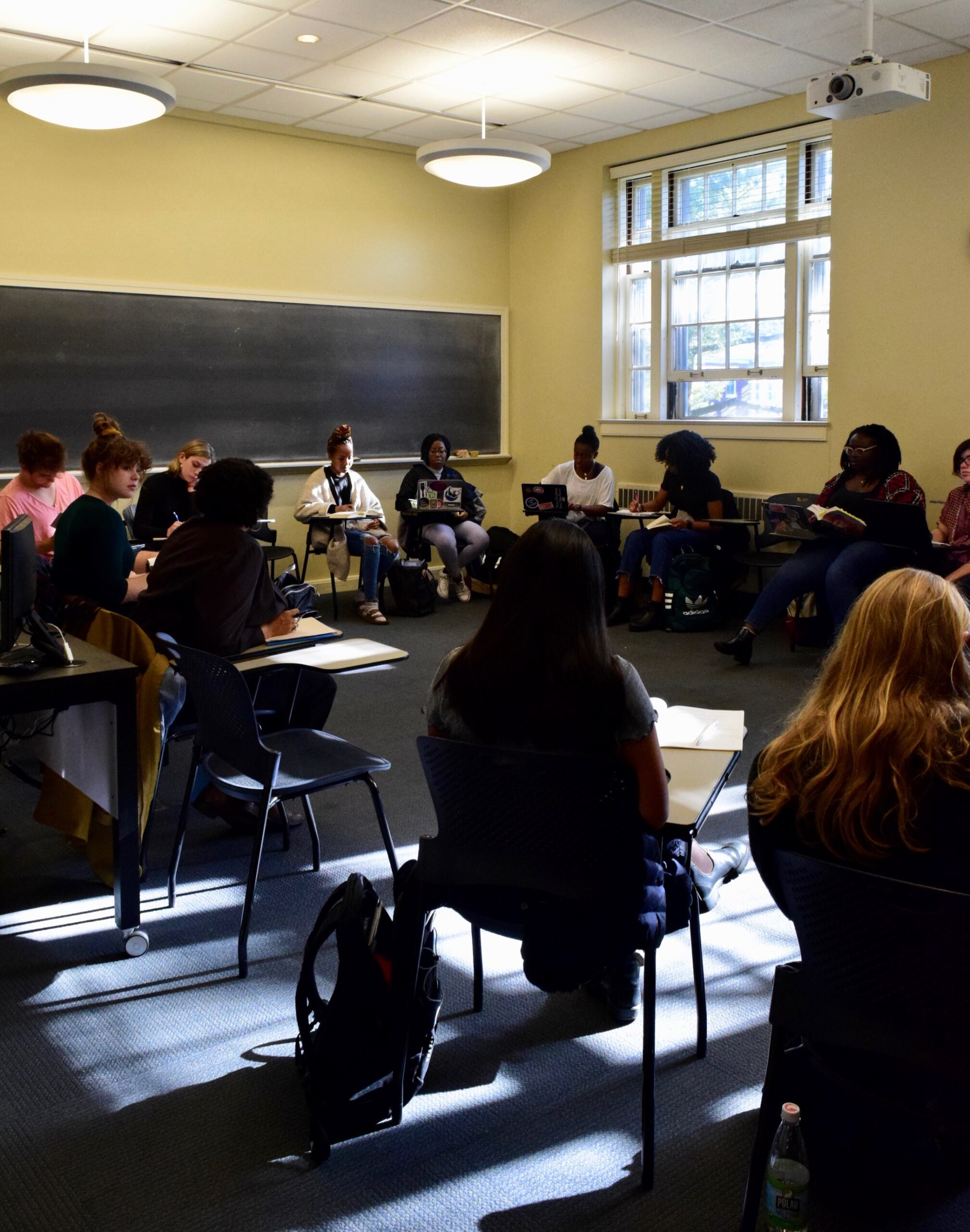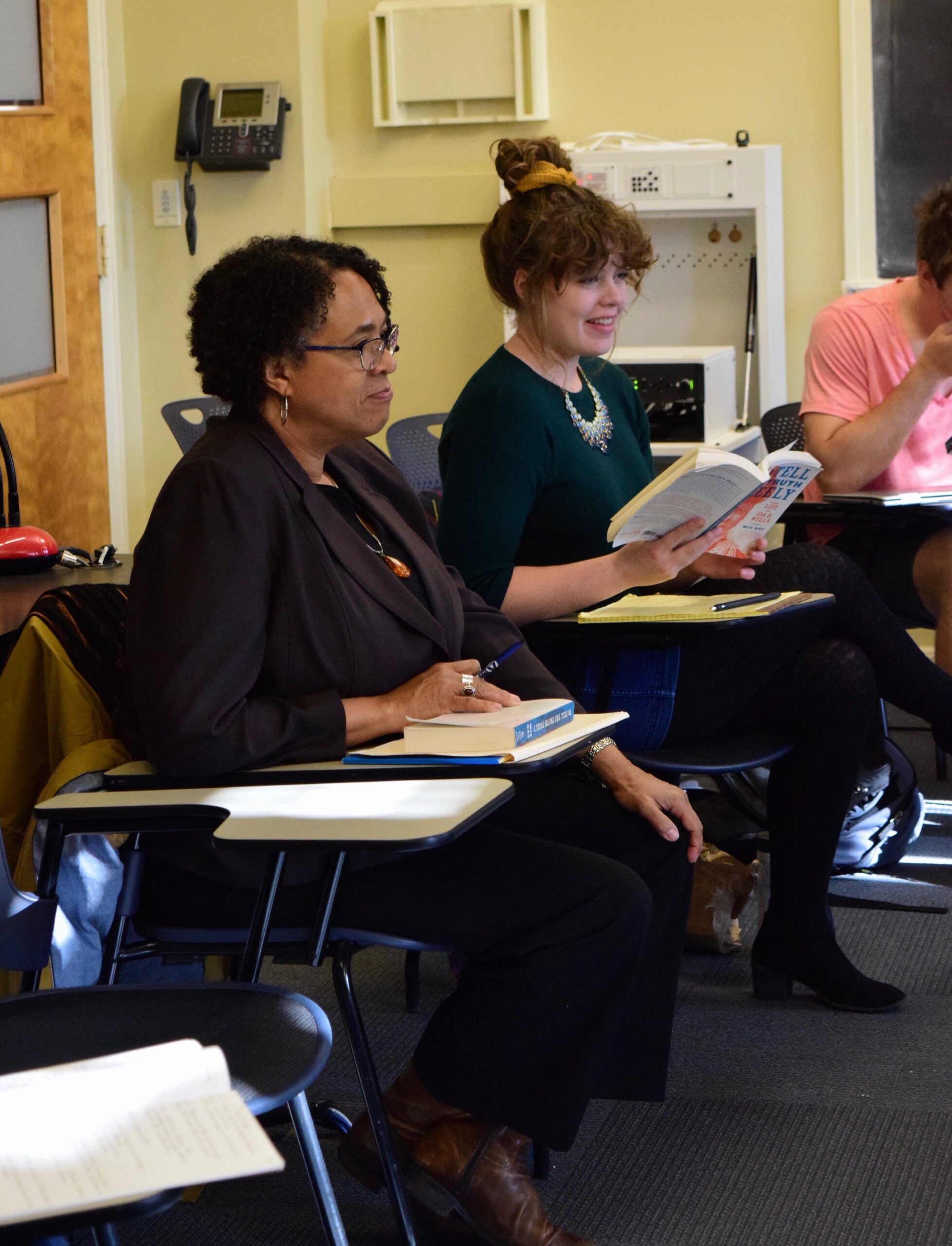Course sheds light on the untold narratives of Black women
November 8, 2019
 Maya Chandar Kouba
Maya Chandar KoubaIt was by chance that Peter M. Small Associate Professor of Africana Studies Tess Chakkalakal and Associate Professor of Africana Studies Judith Casselberry first conceived the idea for the course, “Black Women’s Lives as the History of Africana Studies: Eighteenth and Nineteenth Century” which they now co-teach.
“We’re friends, but we’ve never really worked together,” said Chakkalakal. “So [the course] just kind of came about as a result of a series of conversations we’d been having about some of these books.”
After discussing the books, Chakkalakal and Casselberry proposed a course that offers insight into the often ignored voices of Black women.
The two aligned the course with this semester’s AF/AM/50 celebration in recognition of 50 years of Africana Studies, the John Brown Russwurm African American Center and the African American Society at Bowdoin.
“Anniversaries are all about history, right? Like the past, and how far we’ve come kind of narratives,” said Chakkalakal. “But it’s also future-oriented, thinking about the future of Africana Studies, ways of re-conceptualizing the field to make it more widely accessible and [more] important to the way we understand American culture.”
Chakkalakal explained that the course opens up the conversation about producing a new narrative around Africana Studies by examining the role Black women in the 18th and 19th century have played in its development.
“We really wanted to focus on Black women’s lives, and we wanted to put it in the context of the larger intellectual project of Africana Studies,” said Casselberry. “To think about how looking at the experiences and expressions of particular Black women, how those specific lives can actually show us what the larger issues in Africana studies have been as an intellectual project over time.”
Celebrating Af/Am/50
The class is taught as a conversation-style seminar, where students discuss and analyze texts such as the poetry of Phillis Wheatley, Frances Harper’s “Iola Leroy,” and the biographies of Ida B. Wells and Sojourner Truth.
Casselberry and Chakkalakal invited authors of contemporary works on these literary icons to speak to the class, including Mia Bay, author of “To Tell the Truth Freely: The Life of Ida B. Wells,” and Nell Painter, author of “Sojourner Truth: A Life, A Symbol.” These authors offered insight into the lives of the women students read about.
There are currently 21 students enrolled in the class, the majority of whom are Black women. This composition of the class, unusual for a predominantly white college like Bowdoin, enhances the experience for the students and professors.
“This is probably the only class I’ve taught which is a majority Black women student body,” said Chakkalakal. “A class that is dominated by minority students at Bowdoin is a real change. It’s a majority-minority student population, so that creates a different dynamic in the class.”
The focus on women within the field of Africana Studies makes the course unique among Africana Studies courses at Bowdoin.
 Maya Chandar Kouba
Maya Chandar Kouba“The course is definitely my favorite class at Bowdoin that I’m taking now and probably that I’ve taken so far,” said Safiya Osei ’21. “A lot of classes on Africa or the African Diaspora tend to focus on Black people as a whole, and even focus a lot on the stories of men. This class is very much about the stories of women and their impacts.”
Another reason for students’ positive experience is the co-taught nature of the course.
Kevin Fleshman ’23 commented that co-teaching has allowed for a more cohesive examination of the lives of Black women, with Chakkalakal approaching the material from a literary perspective and Casselberry providing more anthropological insight.
“I like the co-teaching,” said Fleshman. “They have different perspectives [which] helps me come up with my own arguments and ideas.”
The two professors have likewise found the collaboration to be rewarding. Both have enjoyed teaching the class and the energetic debates give the classroom a dynamic energy, said Casselberry.
“One of the best things about being in this program is that we’re able to have passionate disagreements and remain the best of friends,” Chakkalakal said. “That is something that we want our students to do as well, and we’ve really seen that happening in this class.”
Next semester, Chakkalakal and Casselberry will offer a follow-up course that will explore Black women’s lives in the 20th and 21st centuries.

Comments
Before submitting a comment, please review our comment policy. Some key points from the policy: